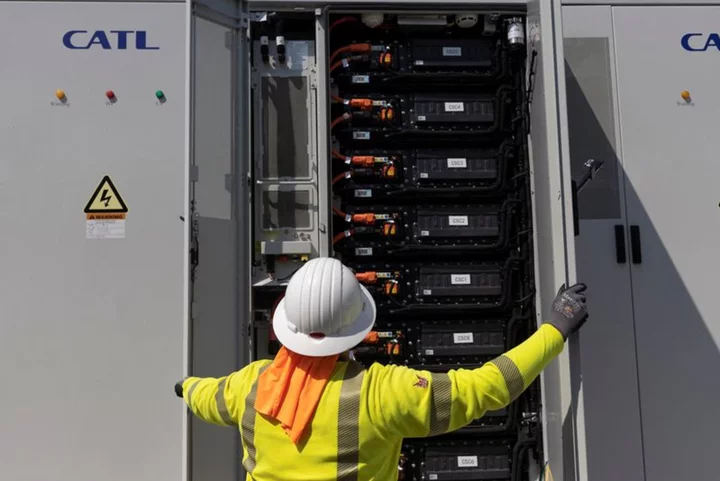
Texas battery rush: Oil state's power woes fuel energy storage boom
By Nichola Groom and Laila Kearney BlackRock, Korea's SK, Switzerland's UBS and other companies are chasing an investment
1970-01-01 08:00
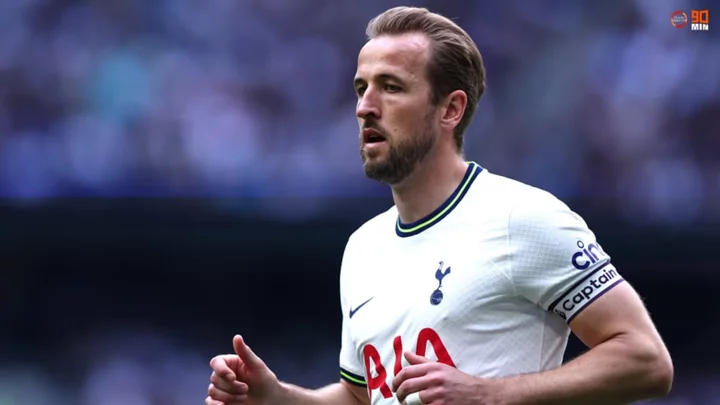
Europe's top clubs believe Harry Kane will stay at Tottenham
Harry Kane has been consistently linked with a move away from Tottenham Hotspur this summer, but he could end up staying in north London.
1970-01-01 08:00
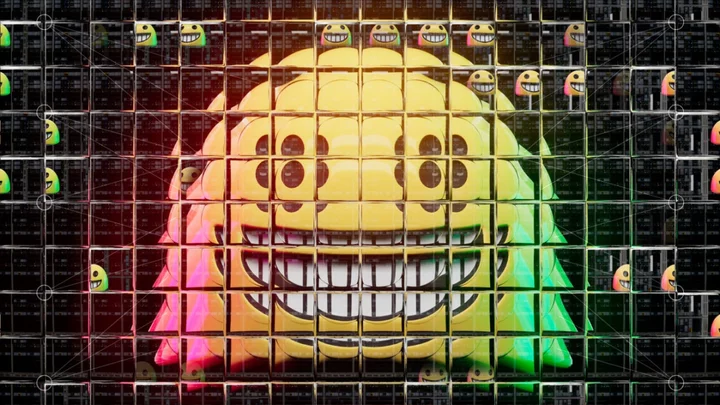
Voices: The real reason companies are warning that AI is as bad as nuclear war
They are 22 words that could terrify those who read them, as brutal in their simplicity as they are general in their meaning: “Mitigating the risk of extinction from AI should be a global priority alongside other societal-scale risks such as pandemics and nuclear war.” That is the statement from San Francisco-based non-profit the Center for AI Safety, and signed by chief executives from Google Deepmind and ChatGPT creators OpenAI, along with other major figures in artificial intelligence research. The fact that the statement has been signed by so many leading AI researchers and companies means that it should be heeded. But it also means that it should be robustly examined: why are they saying this, and why now? The answer might take some of the terror away (though not all of it). Writing a statement like this functions as something like a reverse marketing campaign: our products are so powerful and so new, it says, that they could wipe out the world. Most tech products just promise to change our lives; these ones could end it. And so what looks like a statement about danger is also one that highlights just how much Google, OpenAI and more think they have to offer. Warning that AI could be as terrible as pandemics also has the peculiar effect of making artificial intelligence's dangers seem as if they just arise naturally in the world, like the mutation of a virus. But every dangerous AI is the product of intentional choices by its developers – and in most cases, from the companies that have signed the new statement. Who is the statement for? Who are these companies talking to? After all, they are the ones who are creating the products that might extinguish life on Earth. It reads a little like being hectored by a burglar about your house’s locks not being good enough. None of this is to say that the warning is untrue, or shouldn't be heeded; the danger is very real indeed. But it does mean that we should ask a few more questions of those warning us about it, especially when they are conveniently the companies that created this ostensibly apocalyptic tech in the first place. AI doesn't feel so world-destroying yet. The statement's doomy words might come as some surprise to those who have used the more accessible AI systems, such as ChatGPT. Conversations with that chatbot and others can be funny, surprising, delightful and sometimes scary – but it's hard to see how what is mostly prattle and babble from a smart but stupid chatbot could destroy the world. They also might come as a surprise to those who have read about the many, very important ways that AI is already being used to help save us, not kill us. Only last week, scientists announced that they had used artificial intelligence to find new antibiotics that could kill off superbugs, and that is just the beginning. By focusing on the "risk of extinction" and the "societal-scale risk" posed by AI, however, its proponents are able to shift the focus away from both the weaknesses of actually existing AI and the ethical questions that surround it. The intensity of the statement, the reference to nuclear war and pandemics, make it feel like we are at a point equivalent with cowering in our bomb shelters or in lockdown. They say there are no atheists in foxholes; we might also say there are no ethicists in fallout shelters. If AI is akin to nuclear war, though, we are closer to the formation of the Manhattan Project than we are to the Cold War. We don’t need to be hunkering down as if the danger is here and there is nothing we can do about it but “mitigate it”. There's still time to decide what this technology looks like, how powerful it is and who will be at the sharp end of that power. Statements like this are a reflection of the fact that the systems we have today are a long way from those that we might have tomorrow: the work going on at the companies who warned us about these issues is vast, and could be much more transformative than chatting with a robot. It is all happening in secret, and shrouded in both mystery and marketing buzz, but what we can discern is that we might only be a few years away from systems that are both more powerful and more sinister. Already, the world is struggling to differentiate between fake images and real ones; soon, developments in AI could make it very difficult to find the difference between fake people and real ones. At least according to some in the industry, AI is set to develop at such a pace that it might only be a few years before those warnings are less abstractly worrying and more concretely terrifying. The statement is correct in identifying those risks, and urging work to avoid them. But it is more than a little helpful to the companies that signed it in making those risks seem inevitable and naturally occurring, as if they are not choosing to build and profit from the technology they are so worried about. It is those companies, not artificial intelligence, that have the power to decide what that future looks like – and whether it will include our "extinction". Read More Opinion: Age gap relationships might seem wrong, but they work. Trust me Hands up if you trust Boris Johnson | Tom Peck Boris’s ‘ratty rat’ rage against Sunak could bring the Tories down | John Rentoul Opinion: Age gap relationships might seem wrong, but they work. Trust me Hands up if you trust Boris Johnson | Tom Peck Boris’s ‘ratty rat’ rage against Sunak could bring the Tories down | John Rentoul
1970-01-01 08:00

Deloitte Flags Holes in Adani Ports Deals, Cites Need for Review
Adani Ports & Special Economic Zone Ltd.’s auditor sounded a note of caution over insufficient disclosures around the
1970-01-01 08:00
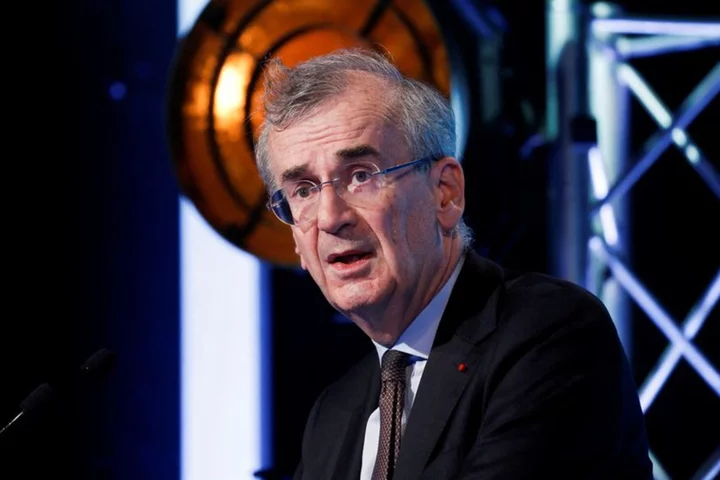
Bank of France's Villeroy: Inflation may be past its peak in France
By Mathieu Rosemain PARIS Inflation may be past its peak in France, Bank of France Governor Francois Villeroy
1970-01-01 08:00
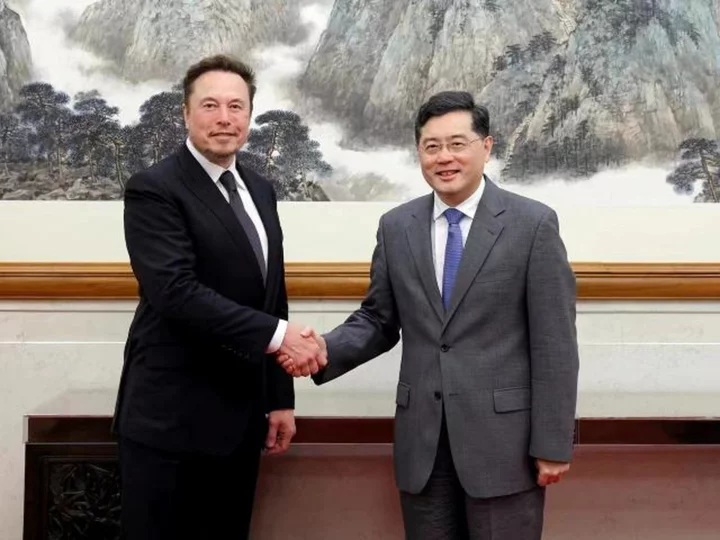
From Elon Musk to Jamie Dimon, CEOs flock to China as risks to trade and investment rise
The CEOs of some of America's biggest companies are in China this week to take the pulse of one of their top markets after the country reopened following nearly three years of pandemic restrictions.
1970-01-01 08:00
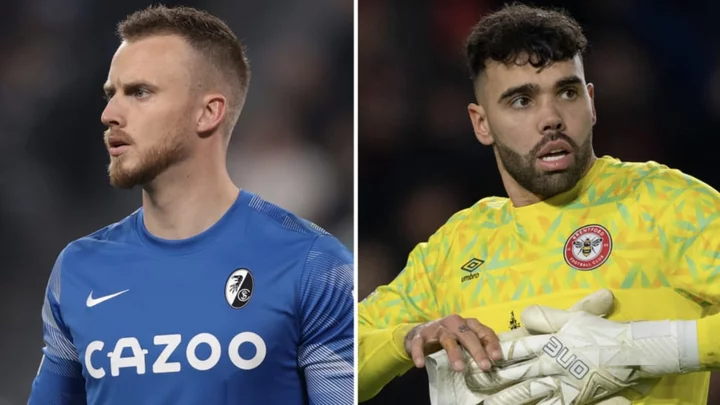
Brentford sign goalkeeper Mark Flekken as David Raya exit nears
Brentford have announced the signing of goalkeeper Mark Flekken ahead of the likely summer departure of David Raya.
1970-01-01 08:00
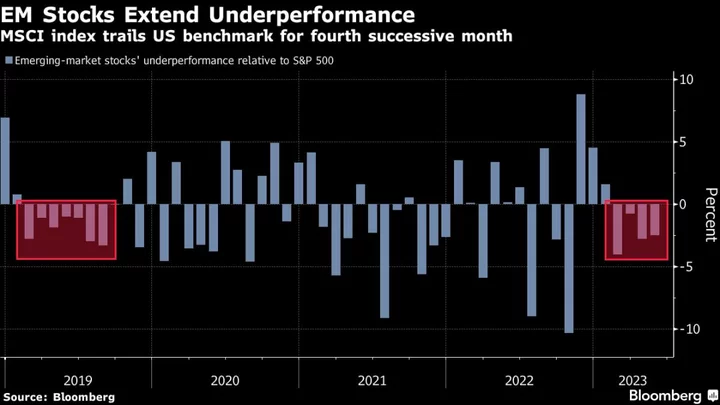
Stocks in EM Slip to Worst Underperformance Since 2019 Trade War
Stocks in the developing world haven’t had such a bad run since the height of the US-China trade
1970-01-01 08:00
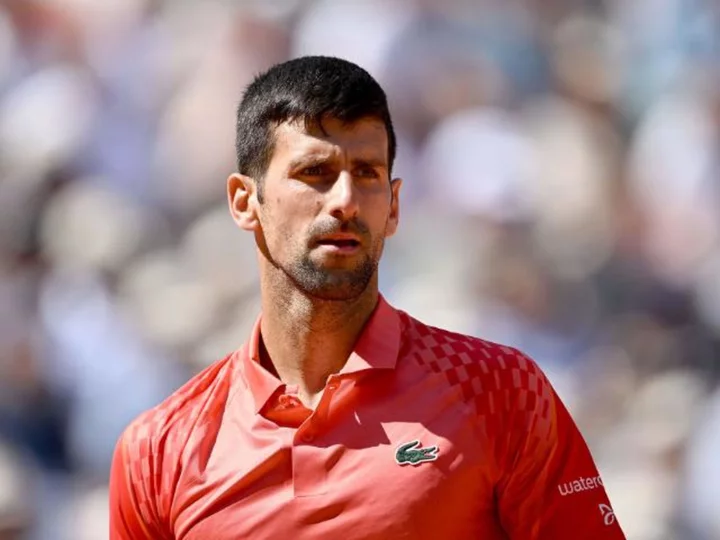
Kosovan Olympic Committee calls for disciplinary action against Novak Djokovic
The Kosovan Olympic Committee (KOC) has called for the International Olympic Committee (IOC) and International Tennis Federation (ITF) to take disciplinary action against Serbian tennis player Novak Djokovic.
1970-01-01 08:00
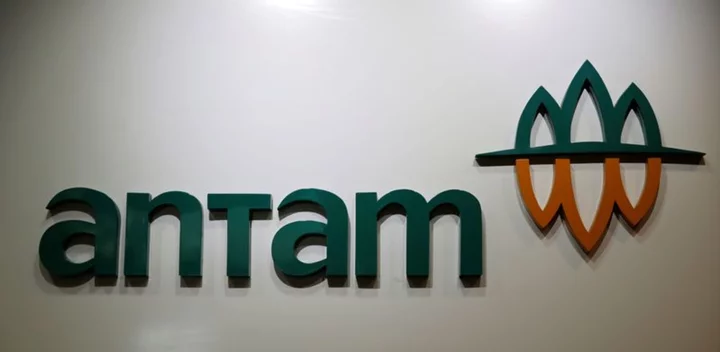
British consortium to invest $9 billion in Indonesia mining, EV batteries, minister says
JAKARTA A British consortium that includes mining giant Glencore will invest about $9 billion in Indonesia's mining and
1970-01-01 08:00
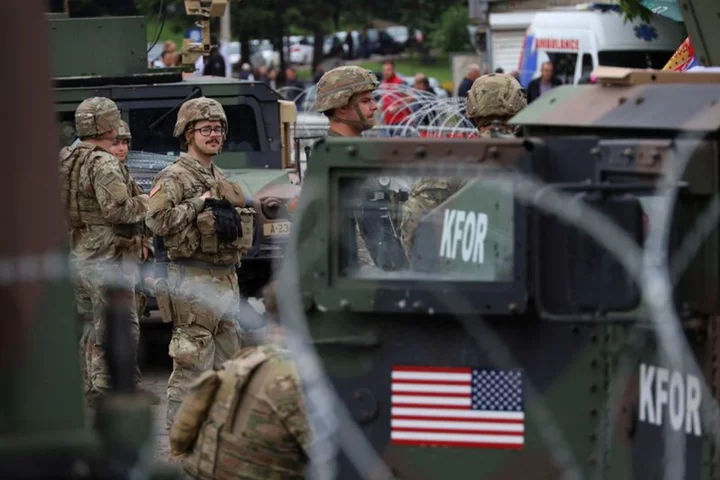
U.S. troops guard town hall in northern Kosovo
By Fatos Bytyci LEPOSAVIC, Kosovo U.S. peacekeepers stood behind barbed wire as protestors held a Serbian flag outside
1970-01-01 08:00
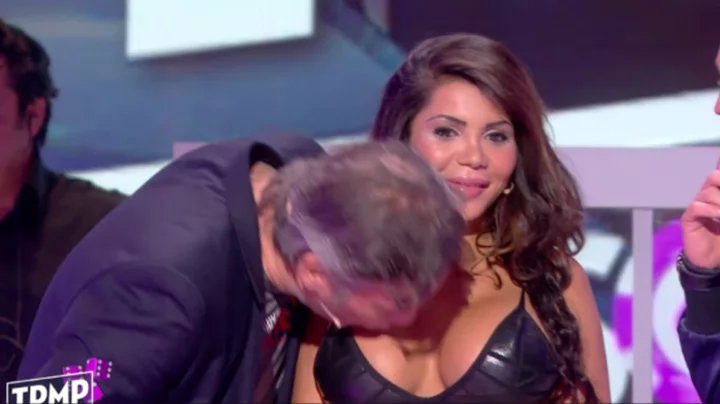
This woman didn't want to be kissed on live TV. The presenter decided to kiss her breast instead
A woman playing Kim Kardashian in a French gameshow skit had her breast kissed on live television. Not just without consent, but actively against her will. The incident took place on the popular French TV show TPMP (Touche pas à mon poste!) in 2016, as part of project 35heuresdebaba ('35 hours of Baba'), in which TV presenter Cyril Hanouna tried to break a national record by appearing on air for 35 hours straight. Ironically, touche pas translates as 'don't touch'. Sign up to our new free Indy100 weekly newsletter Soraya was playing Kim Kardashian, in a parody of the Paris robbery. Game show host Jean-Michel Maire was playing the locksmith. When she was 'freed', Maire suggested that Soraya should kiss him as a form of compensation. She refused. They ignored her, and she continued to refuse. Explicitly. "No." "She said yes. She said yes." "I said no." And then they demanded that she justify her refusal. When she answered that people were watching, the presenters had a response ready. Well, we can do it backstage! Both men were laughing at 21-year-old Soraya, who was smiling uncomfortably and continued to pressure her for a kiss on the cheek. Eventually, Maire decided he would ignore her refusal, and go in for her cheek. When she turned her head away to avoid it, he ducked down and kissed her breast instead. The issue of consent issue is completely clear. There's no miscommunication or misinterpretation: no ambiguity. She said no. Twice. And turned her face away. The incident caused a slew of complaints at the time to the Conseil Superior d 'Audiovisual (CSA), the government body which regulates French TV and radio, which launched an investigation into the show. According to a spokesperson for network C8, which airs the 35-hour program, Hanouna asked Maire to apologise to her immediately after the incident, which Soraya says he did. French law defines sexual assault as 'any sexual act that involves violence, coercion, threat or surprise', and could incur a jail sentence of up to five years and a fine of 75,000 Euros. Representatives for TPMP declined to comment but told indy100 that there would be no press release or statement on social media.Have your say in our news democracy. Click the upvote icon at the top of the page to help raise this article through the indy100 rankings.
1970-01-01 08:00
